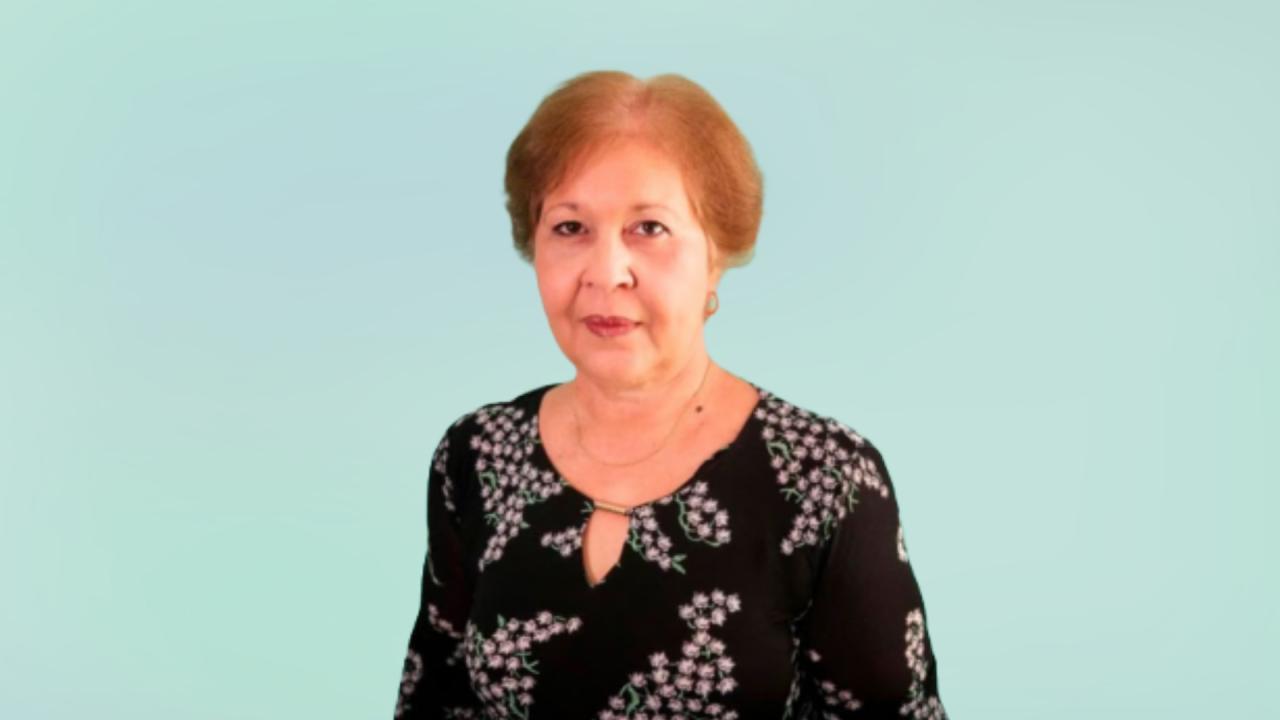Cuban intellectual Alina Bárbara López has reiterated that she will not pay the fine for "disobedience" she received after the legal deadline to do so has expired. The doctor of History was visited by three (!) female inspectors who served her a document termed the "Insolvency Act Form," but she refused to sign it, for the simple reason that she has the means to pay the fine, but refuses to do so, intentionally adopting a position of what she describes as "defiance of an arbitrary and illegitimate sanction."
The handling of the situation by the neo-Castro regime has exhibited a dynamic that has been recurring for some years now in Cuban society, with the regime increasingly disconcerted and inept in its responses to these kinds of cases. Did it really take three female officials to take a document to a citizen's house, or would it have been enough to send a summons to the appropriate court? This bungling exaggeration, in terms of both numbers and procedure, evidences the system's apprehension in the face of the "bad example" promoted by this act of civil disobedience. The inspectors were not there to intimidate Dr. López, but rather her neighbors and all those who are waiting for the final chapter of this story. It is a Sicilian-type message from the regime, with the significant difference that in this case, the victim does not "sleep with the fishes" like Luca Brasi, but rather is alive and kicking.
The dictatorship's main concern for the dictatorship is not about this isolated event, but rather clusters of such daily challenges, both personal and by groups. Alina Bárbara has been demonstrating on the 18th of each month at the Parque de la Libertad in Matanzas, first alone and then in the company of colleagues and friends. Empirically, she has been implementing a method of "progressive immersion" in resistance actions, evolving from the simple to the profound. As a rule, people respond to events related to their daily lives, ones in which they see their own realities reflected, such that they feel empathy towards those involved. Hence the importance of generating examples available to anyone and transcending the hyperbolic paradigms that make no sense to the ordinary Cuban, immersed in a daily struggle for survival.
Not everyone can be a Mahatma Gandhi, but anyone can be a Rosa Parks, without forgetting that in both cases, and in many other similar ones under different circumstances, change has been sparked by a seemingly simple action replicated by hundreds and thousands of people in space and time. Challenging the ban on salt production in India, refusing to give up a seat on a bus in the United States, voting NO in a plebiscite in Chile, or refusing to work in a shipyard in Poland, were steps taken by citizens that led to the development of movements for social change. Everything begins within the individual, and from there it is projected outwards and reproduced in their environment. People do not know their true power; hence, anything that makes them aware of the potential of their small acts of defiance is of extreme importance, however trivial it may seem. The multiplication of success is a catalyst for change processes.
For this to happen, a process of replication is necessary, the concatenation of these simple acts of public resistance, in themselves completely legal and morally valid, as Dr. López has demonstrated well. What would happen if all the people who have received arbitrary fines (the self-employed for example) refused to pay them? What would happen if all those mothers and fathers who do not want to send their children for compulsory military service refused to do so? Could they imprison them all? It is not possible in either numerical or political terms. When a person adopts an attitude, it is an act of individual reaffirmation; when a thousand people adopt that same attitude, it is a trend; and when ten thousand people adopt it ... it is a movement.
The power of such a simple act is the first link to tap into the power of the transcendental. It is what impacts people's inner selves, then connecting them with others in similar situations and uniting them around a specific cause or action. When it comes to people who are normally apathetic or indifferent to injustice, because they believe that there is no possibility of obtaining results, wise and inspirational actions are needed to elicit from them the will to take a stand, in whatever form that might be. Although the typical vision of non-violent strategic action is, generally, a massive protest, in most cases this occurs as a result of a transformative process starting with small acts of resistance that intertwine over time.
By publicly confirming her stance of insubordination, Dr. Alina Bárbara López is challenging the foundations of the system of domination by upholding as a right a position classified as a crime in the Criminal Code. This represents a repositioning of the values commonly accepted by citizens, based on an ordinary act. That's why she has power, that's why the regime fears her. As the American writer Oliver Napoleon Hill, author of Think and Grow Rich, one of the 10 best-selling self-help books of all time, said: "If you can't do big things, do small things in a big way."
Omar López Montenegro is president of the Latin American Center for Nonviolence. He has more than 30 years of experience as a practitioner and scholar of non-violent strategic action, and is the author of the book 100 Practical Tips. Non-violent Strategic Struggle. (100 Consejos Prácticos. Lucha Estratégica Noviolenta)
